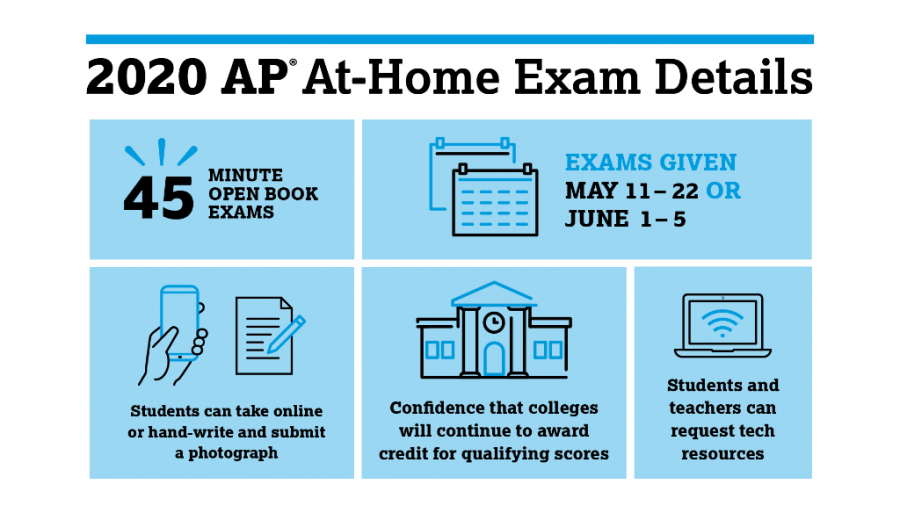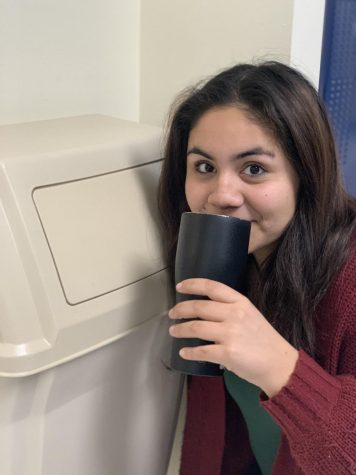Update on state testing and AP exams
The College Board’s Twitter account
An info graphic on the new AP exam protocols.
April 4, 2020
On Tuesday, March 31, 2020, Governor J.B. Pritzker extended Illinois’s “Stay-at-home,” order to reduce the spread of COVID-19. This means that schools will also be closed until then, leaving many students bugged with questions on what that means for their exams.
Governor Pritzker also issued “Executive Order 2020-15,” which suspends all state assessments for the remainder of the 2019-2020 school year. Which includes school-administered tests such as the SAT, PSAT, Illinois Science Assessment, DLM-AA, and Constitution exams.
This means that RBHS will not be administrating the scheduled SAT for juniors, PSAT for underclassmen, or the Illinois Science Assessment for all grades.
The May 2, 2020, SAT exam has been cancelled and registration for fall SAT exams open this month.
“ISBE understands that many students rely on the free SAT college entrance exam and states that it is working with the College Board to develop opportunities for current juniors to take the SAT in the fall. We will provide information on these developments as we receive them,” school testing director Marc Helgeson said.
On Friday, April 3, 2020, the College Board released their official AP exam protocol regarding the situation. The new exams will be administered on May 11 through May 22, with makeup days from June 1 through June 5. Exam content and schedule can be found here.
The exams will be 45 minutes long with only free-response questions. They will also be open notes. This is a drastic change from previous years. For example, this year’s AP US History exam will be only one data-based question. Where in previous years it was 55 multiple choice questions, three short answer questions, one document-based question, and one long essay, all done in less than four hours.
“In late April, we’ll provide AP students and educators with information on how to access the testing system on test day, and video demonstrations so that students can familiarize themselves with the system,” the College Board said.



